Last updated April 25, 2022
![How long will the pain last after tooth extraction? A Dentist Explains] 16 Patient.](https://i0.wp.com/365dentist.jp/wp-content/uploads/2021/10/2502014.png?resize=150%2C150&ssl=1)
After a tooth extraction, it is still painful.I am concerned about how long the pain will last and what kind of pain it will be.
![How long will the pain last after a tooth extraction? A Dentist Explains] 17 dentist](https://i0.wp.com/365dentist.jp/wp-content/uploads/2021/11/dentalhygienist_man_color.png?resize=150%2C150&ssl=1)
Pain is anxiety. This time.I will explain the pain of tooth extraction.
![How long will the pain last after tooth extraction? A Dentist Explains] 18 image](https://i0.wp.com/365dentist.jp/wp-content/uploads/2021/06/image.png?resize=163%2C217&ssl=1) Written by dentist/issy
Written by dentist/issy
After graduating from the National School of Dentistry, he trained at the Tokyo Medical and Dental University Dental Hospital, and is currently working in general and orthodontic dentistry.
Member of the Japanese Society of Oral Implantology
How long will the pain last after a tooth extraction?
![How long will the pain last after a tooth extraction? A Dentist Explains] 17 dentist](https://i0.wp.com/365dentist.jp/wp-content/uploads/2021/11/dentalhygienist_man_color.png?resize=150%2C150&ssl=1)
Usually strong pain subsides in a few daysThe following is a list of the most common problems with the
If the pain persists for longer than that, see your dentist.
Extraction is performed under anesthesia, then the tooth is dislocated and pulled out by pulling the tooth away from the surrounding tissue.
In doing so, it is inevitable thatThere is a certain probability of infection or blood flow disturbance.The following is a list of the most common problems with the
therebyIt can also be painful.
Types of pain after tooth extraction
![How long will the pain last after tooth extraction? A Dentist Explains] 20 shutterstock 1845308947 2](https://i0.wp.com/365dentist.jp/wp-content/uploads/2021/11/shutterstock_1845308947-2.jpg?resize=640%2C360&ssl=1)
Pain after anesthesia wears off
Reason for pain
tooth extractionindicates certainty, emphasis, etc.The wound may cause pain.The following is a list of the most common problems with the
In the extraction of easy-to-extract teeth, the wound is small and does not damage the tissue much,
The patient often feels no pain after the anesthesia wears off.
But for teeth that are hard to pull out,
This is because cutting the gums with a scalpel or cutting between the teeth and bone also increases the probability of tissue damage,
Pain often occurs after the anesthesia wears off.
![How long will the pain last after a tooth extraction? A Dentist Explains] 17 dentist](https://i0.wp.com/365dentist.jp/wp-content/uploads/2021/11/dentalhygienist_man_color.png?resize=150%2C150&ssl=1)
During the extraction, though, the patient will not feel any pain because of the anesthesia,
After tooth extraction, pain may occur gradually as the anesthesia wears off.
Anesthesia dosage and duration of effect
![How long will the pain last after a tooth extraction? A Dentist Explains] 17 dentist](https://i0.wp.com/365dentist.jp/wp-content/uploads/2021/11/dentalhygienist_man_color.png?resize=150%2C150&ssl=1)
By anesthesia due to tooth extraction,
The duration of anesthesia is approximately 1 hour and 30 minutes for a short person.
For the longest person, it is about 4 to 5 hours.
However, the duration of anesthesia depends on the amount of anesthesia administered and the patient's constitution.
When extracting a tooth that is wobbly or decayed and ragged,
The amount of anesthesia is almost the same as that used to treat normal tooth decay and periodontal disease.
![How long will the pain last after tooth extraction? A Dentist Explains] 16 Patient.](https://i0.wp.com/365dentist.jp/wp-content/uploads/2021/10/2502014.png?resize=150%2C150&ssl=1)
Is there a lot of anesthesia for wisdom teeth extraction?
![How long will the pain last after a tooth extraction? A Dentist Explains] 17 dentist](https://i0.wp.com/365dentist.jp/wp-content/uploads/2021/11/dentalhygienist_man_color.png?resize=150%2C150&ssl=1)
Like buried in the gums.When wisdom teeth are extracted, 1.5 to 2 times the normal amount of anesthesia is required.
In addition, people with hard or thick bones have difficulty with anesthesia,Inevitably, the amount of anesthesia will be higher.
The higher the dose of anesthesia, the longer the anesthesia generally remains in effect.
![How long will the pain last after a tooth extraction? A Dentist Explains] 17 dentist](https://i0.wp.com/365dentist.jp/wp-content/uploads/2021/11/dentalhygienist_man_color.png?resize=150%2C150&ssl=1)
It is difficult to predict the magnitude and duration of post-extraction pain, though,
It is possible to take measures to prevent as much pain as possible.
How to prevent pain
![How long will the pain last after tooth extraction? A Dentist Explains] 26 22004821 s](https://i0.wp.com/365dentist.jp/wp-content/uploads/2021/11/22004821_s.jpg?resize=640%2C511&ssl=1)
After the anesthesia wears off, you should feel as little pain as possible.
Prophylactic pain medication before tooth extractionWe recommend that you do the following
The pain after the anesthesia wears off is
It usually heals in one to two days.
![How long will the pain last after a tooth extraction? A Dentist Explains] 27 Patient.](https://i0.wp.com/365dentist.jp/wp-content/uploads/2021/10/2506135.png?resize=150%2C150&ssl=1)
It seems that sometimes dentists tell you to take it before tooth extraction.
If you're worried, you can ask in advance.
Pain due to infection
![How long will the pain last after tooth extraction? A Dentist Explains] 30 5121498 s](https://i0.wp.com/365dentist.jp/wp-content/uploads/2021/11/5121498_s.jpg?resize=640%2C427&ssl=1)
Reason for pain
Minor oral surgery, not limited to tooth extractions, is bound to cause infection to a greater or lesser degree because the wound is contaminated with saliva.
This is because there are many bacteria in saliva.
When infection occurs, the patient's own immune system first resists the infection, but antibiotics further suppress the infection.
However, if the inflammation becomes larger than expected, it cannot be handled by one's own immune system or antibiotics.
This causes symptoms of pain and swelling.
![How long will the pain last after a tooth extraction? A Dentist Explains] 17 dentist](https://i0.wp.com/365dentist.jp/wp-content/uploads/2021/11/dentalhygienist_man_color.png?resize=150%2C150&ssl=1)
Antibiotics are always prescribed when a tooth is extracted.
If the pain becomes worse (more severe)
In the case of mandibular extraction
Inflammation spreads from around the mandible to the throat,
In the worst case, inflammation can spread to the mediastinum (the space surrounded by the left and right lungs where the heart and other organs reside).
For extraction of maxillary teeth
It can spread from the maxillary sinus to the orbit (under the eye) and in the worst case, to the brain. (cellulitis)
treatment
The antibiotic may be changed to a stronger antibiotic or, in some cases, administered intravenously.
This is because it is more effective to have antibiotics in the body by intravenous infusion.
And in the worst case, inpatient management may be required.
How to prevent pain caused by infection
To prevent the infection from becoming severe.
People with low immunity or who have systemic diseases that put them at high risk of infection, such as diabetes mellitus,
It is recommended that prophylactic administration of antibiotics be given prior to tooth extraction to increase the blood level of antibiotics before extraction.
Dry socket pain
![How long will the pain last after tooth extraction? A Dentist Explains] 32 22829997 s](https://i0.wp.com/365dentist.jp/wp-content/uploads/2021/11/22829997_s.jpg?resize=640%2C427&ssl=1)
Reason for pain
What is Dry Socket?Bone surface after extraction and infectionThe condition is that of necrosis.
Caused by some cause.
interpoint (interword separation)Blood clots do not form well after tooth extraction
... the blood clots come off.
This is caused by the above.
How to prevent dry socket
After a tooth extraction, even if it is bloody in the mouth, so that the blood clots are not removed,
- Do not use a strong gargle.
- Do not bite hard objects on the side with the wound.
will be important.
Also, more anesthesia is likely to cause blood flow disorders.
Common Symptoms of Dry Socket
A few days after the extractionPain comes on strong.
No swelling or redness around the area (no signs of inflammation)
Prolonged pain, including pain that lasts for several weeks
![How long will the pain last after a tooth extraction? A Dentist Explains] 17 dentist](https://i0.wp.com/365dentist.jp/wp-content/uploads/2021/11/dentalhygienist_man_color.png?resize=150%2C150&ssl=1)
If you have these symptoms, you may have dry socket.
See your dentist.
How to treat dry socket
The treatment of dry socket includes
Temporary fillings (cement, etc.) are placed in wounds that have been removed.
Temporarily place gauze soaked with antibacterial or steroid ointment into the wound.
Protect with surgical packs.
Such as,Cover the wound with a replacement for the lost blood clot.
![How long will the pain last after a tooth extraction? A Dentist Explains] 17 dentist](https://i0.wp.com/365dentist.jp/wp-content/uploads/2021/11/dentalhygienist_man_color.png?resize=150%2C150&ssl=1)
Also, since dry socket is an infection, antibiotics may be prescribed at first to monitor the progress.
If you're worried about dry sockets, read this too: ☺️
neuropathic pain
![How long will the pain last after tooth extraction? A Dentist Explains] 37 shutterstock 1952784568](https://i0.wp.com/365dentist.jp/wp-content/uploads/2021/06/shutterstock_1952784568.jpg?resize=1024%2C535&ssl=1)
What is neuropathic pain?
Nerve damage for some reason during tooth extractionby means of
Potential for pain not only in the teeth, but also in the entire mouth, including gums and tongueThere are
![How long will the pain last after a tooth extraction? A Dentist Explains] 17 dentist](https://i0.wp.com/365dentist.jp/wp-content/uploads/2021/11/dentalhygienist_man_color.png?resize=150%2C150&ssl=1)
Neuropathic pain is especially likely to occur after wisdom tooth extraction in the mandible.
This is because the jaws of Japanese people are smaller than those of Westerners, and the root tips of wisdom teeth in the lower jaw often come in contact with the nerves.
Pain Characteristics of Neuropathic Pain
Burning pain
Pain that feels like an electric shock
...It's like the anesthesia is working all the time.
It varies from one to another, such as
How to treat neuropathic pain
Symptoms may persist for weeks to months at the earliest, years at the longest, and in some cases, semi-permanently.
As a treatment,
Drug Therapy
Vitamins, steroids, ATP preparations, and herbal medicines
Block injection
Treatment aimed at relieving symptoms by blocking the stellate ganglion
Nerve suture surgery
Indicated when nerves are completely torn, for example
![How long will the pain last after a tooth extraction? A Dentist Explains] 17 dentist](https://i0.wp.com/365dentist.jp/wp-content/uploads/2021/11/dentalhygienist_man_color.png?resize=150%2C150&ssl=1)
To reduce the probability of developing neuropathic pain,
CT scan before tooth extractionto determine the location of the roots and nerves of the teeth in three dimensions.
It is recommended that the tooth be extracted.
summary
Because extraction is a surgical procedure, the postoperative period may be painful.
In the case of simple tooth extraction, though, it may not be accompanied by pain,
The possibility of pain is increased in the case of extraction of hard-to-remove teeth.
If pain occurs, it usually settles down in a few days,
Pain may be prolonged if infection, impaired blood flow, or neuropathic pain occurs.
If you have any questions or concerns about your teeth, please feel free to contact us on our official line or in our casual open chat.

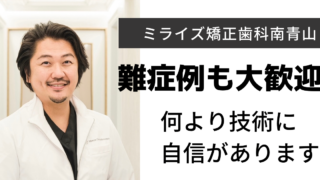
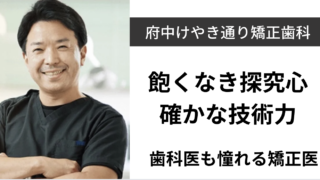

![Ikebukuro] Myozui Orthodontics, Kitahara 4 A9D63899 8BBF 4AC0 A512 781143AF8AE2](https://365dentist.jp/wp-content/uploads/2023/03/A9D63899-8BBF-4AC0-A512-781143AF8AE2-320x180.png)
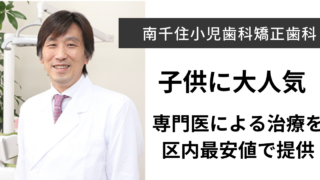
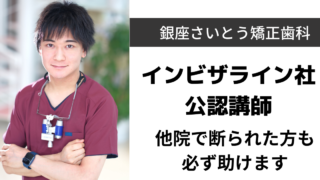
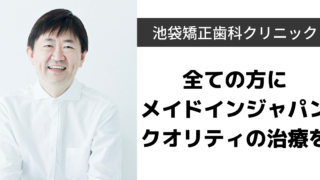

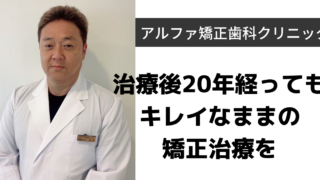
![Akihabara] Akihabara Orthodontics 10 cc21aaaf e747 48e7 918f a7537749e093](https://365dentist.jp/wp-content/uploads/2023/03/CC21AAAF-E747-48E7-918F-A7537749E093-320x180.jpg)
![Mejiro] Mejiro Dentistry & Orthodontics 11 Mejiro Icon](https://365dentist.jp/wp-content/uploads/2023/04/目白アイコン-320x180.jpg)
![Hamamatsucho] Maruyama Orthodontics 12 1b28b683 0b07 467a 8db3 c6f9c21b69f3](https://365dentist.jp/wp-content/uploads/2023/02/1B28B683-0B07-467A-8DB3-C6F9C21B69F3-320x180.png)
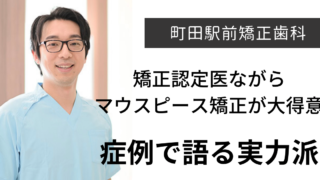
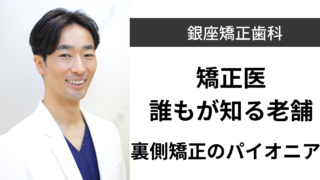
![How long will the pain last after tooth extraction? The Dentist Explains] 15 shutterstock 1746929894 scaled](https://i0.wp.com/365dentist.jp/wp-content/uploads/2021/11/shutterstock_1746929894-scaled.jpg?fit=2560%2C1920&ssl=1)
![How long will the pain last after a tooth extraction? A Dentist Explains] 28 65d9885f4583130682e67c4e6124bd43](https://i0.wp.com/365dentist.jp/wp-content/uploads/cocoon-resources/blog-card-cache/65d9885f4583130682e67c4e6124bd43.jpg?resize=160%2C90&ssl=1)
![How long will the pain last after tooth extraction? A Dentist Explains] 35 a4466d5c1157fbbe2da9b5425d09f594](https://i0.wp.com/365dentist.jp/wp-content/uploads/cocoon-resources/blog-card-cache/a4466d5c1157fbbe2da9b5425d09f594.jpg?resize=160%2C90&ssl=1)



Comment